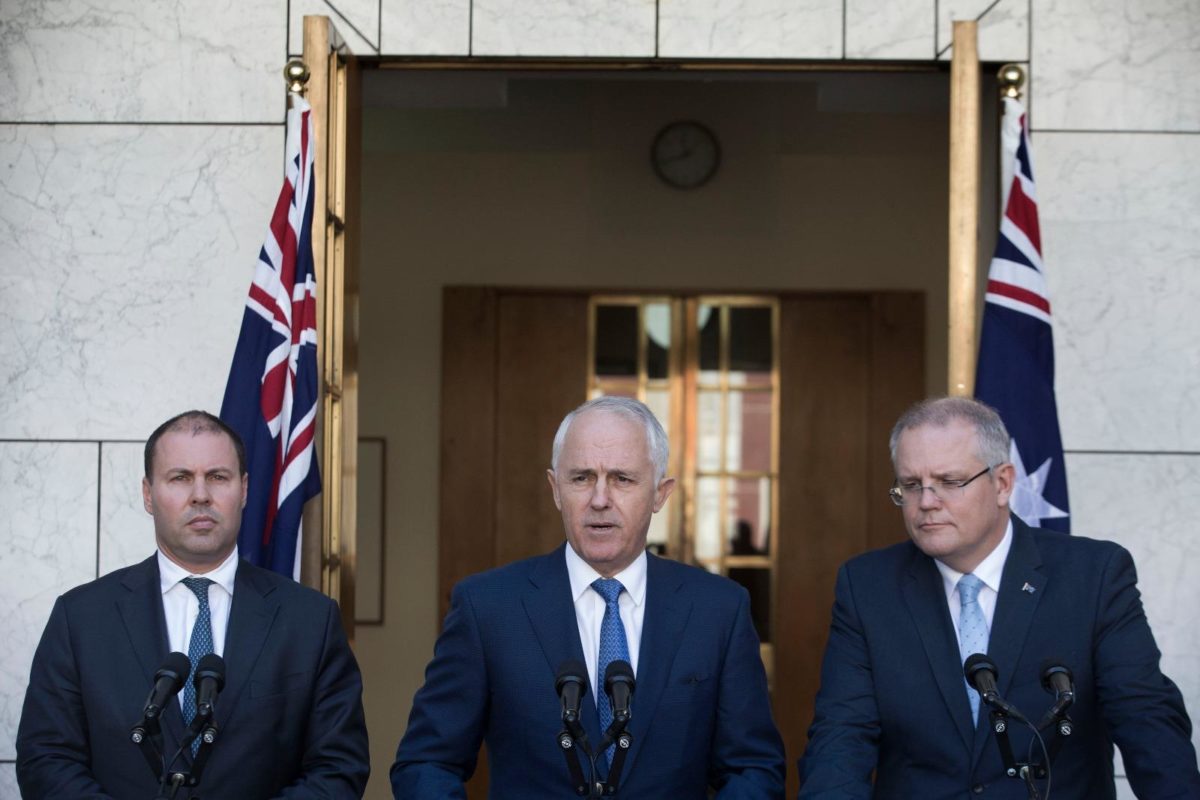In an interview with The Australian, former Prime Minister (PM) Malcolm Turnbull has criticised the Liberal Party (Party) for its failure to develop “a coherent national energy policy”, blaming his former Party for higher power bills and increasing carbon emissions.
Turnbull’s criticism is in line with recent reports from both the Grattan Institute and the Clean Energy Council. The latter’s showing a drop to levels of renewable energy investment not seen since the Abbott era, the result of investor pause in the face of a lack of federal energy policy.
“The Liberal Party has just proved itself incapable of dealing with the reduction of greenhouse gas emissions in any sort of systematic way,” Turnbull told The Australian.
Turnbull did not pull punches in his assessment of the current state of affairs in the Party. Turnbull believes the Party has been influenced by a reactionary sect of climate change deniers, and that any party which thought itself beholden to the political philosophy of modern conservatism would support a reduction in carbon emissions. Turnbull is not wrong; after all, conservation is at the heart of true conservatism and conservation is made infinitely easier with sustainability.
Turnbull argued the term “conservative” had lost its true meaning, particularly the meaning given to it 75 years ago when Robert Menzies founded the Liberal Party as “genuinely progressive”. That party, said Turnbull, bares no resemblance to the kind of reactionary and populist brand of conservatism now prevalent overseas.
“A lot of the people that talk about conservatism would not know the difference between Edmund Burke and Tony Burke,” quipped Turnbull, touching on a point well worth making. After all, Edmund Burke, the founder of modern conservatism, also wrote A Philosophical Enquiry into the Origin of our Ideas of the Sublime and Beautiful, a treatise in which the great 18th Century figure argued for the corrective power of the sublimity of nature, for its ability to provide us with that clarity of mind called humility.
The denial of climate change is the rejection of humility before our environment, and the inability to set federal policy for the nation’s energy transition to renewables is a rejection of the kind of continuity required for the nation’s stability. Surely then, Turnbull is on the verge of a good point, both positions being taken currently by the Liberal Party are an affront to conservatism. Indeed, there is no continuity in lack of policy, nor in fealty to reactionary extremists within the Party, for any extreme is more than a mere wobble.
“Conservatives are practical,” continued Turnbull. “There is nothing conservative, for example, (in) denying the science of climate change. That’s not a conservative position. That is just, well, that is just denying reality. You might as well deny gravity.” The analogy to the denial of gravity seems apposite at a time when Prime Minister Morrison and his Energy Minister Angus Taylor get around with a definitive air of thinking themselves high above the rest of us.
“We (need to) have an effective set of rules to govern our energy market and ensure a low cost and stable transition from burning fossil fuels to renewable energy,” said Turnbull, who admitted his biggest regret from his time in office was the failure to settle on a national energy policy.
Whether Turnbull’s National Energy Guarantee (NEG) would have been the right move is up for debate, but the need to make a move is above question.
CEC Chief Executive Kane Thornton has noted that “Investors have been forced to balance their record enthusiasm for Australian wind and solar projects with a lack of national policy, growing threats of government interference in the energy market and a range of out-of-date regulations.”
Tony Wood of the Grattan Institute agrees, in a report to this effect released only this week, Wood said the best way to ensure affordable and reliable energy into the future is to implement a well-structured, well-regulated and well-managed market. The Government’s failure to do this, choosing knee-jerk reactions instead or no policy whatsoever, has only served to put off investment.
And recently, BIS Oxford Economics reported that construction work done on renewable energy projects are set to plunge between 40% and 50% in the early 2020s as a result of investor timidity.
Turnbull may have lost his seat at the head of the Liberal Party table, but now that he no longer needs to pander to certain sects of the Party in order to get things done (never his strong suit anyway), the former PM may be in a better position to have his say.
This content is protected by copyright and may not be reused. If you want to cooperate with us and would like to reuse some of our content, please contact: editors@pv-magazine.com.









By submitting this form you agree to pv magazine using your data for the purposes of publishing your comment.
Your personal data will only be disclosed or otherwise transmitted to third parties for the purposes of spam filtering or if this is necessary for technical maintenance of the website. Any other transfer to third parties will not take place unless this is justified on the basis of applicable data protection regulations or if pv magazine is legally obliged to do so.
You may revoke this consent at any time with effect for the future, in which case your personal data will be deleted immediately. Otherwise, your data will be deleted if pv magazine has processed your request or the purpose of data storage is fulfilled.
Further information on data privacy can be found in our Data Protection Policy.